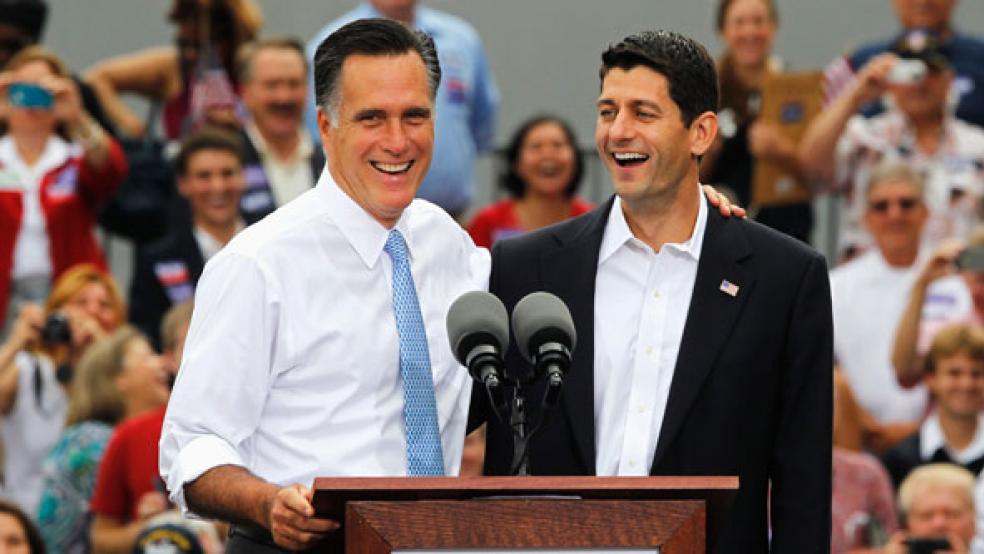By drafting House Budget Committee Chairman Paul Ryan as his running mate, Mitt Romney thought he was adding a franchise player to the GOP ticket.

The Wisconsin congressman came across as a serious-minded wonk with washboard abs. Over the previous two years, he showed an ability to both charm the beltway chattering class and excite the Joe Six-Packs. His warnings about the all-consuming expense of entitlements like Medicare made him an intellectual adversary of President Obama.
RELATED: 10 Big Debate Hurdles Obama and Romney Will Face
But two months into running for vice president, he’s lost his golden boy sheen. Thursday’s debate showdown against Vice President Joe Biden may give Ryan an opportunity to regain that luster. Just as Romney breathed life back into the campaign with a stunning takedown of Obama last week, Ryan needs to demonstrate that he’s a compassionate cost-cutter whose reforms will save Medicare and Medicaid — and not destroy them.
"If Ryan is as solid as Romney was, the meme about [the] campaign shrinking his stature will completely cease," tweeted Austan Goolsbee, an Obama economics adviser who returned to the University of Chicago after serving in the administration.
So what went wrong? Ryan loaded his Republican convention speech with inaccuracies, was caught lying about his time in a marathon, and has been unwilling or unable to explain how Romney’s $5 trillion budget cut proposal won’t add to the deficit.
When he does stir-up the conservative base, it can overshadow Romney, who must court independent voters to improve his odds of winning on Nov. 6. In the two months since Ryan joined the race, Obama consolidated his lead in swing states like Florida and Ohio.
"I hate to say this, but if Ryan wants to run for national office again, he’ll probably have to wash the stench of Romney off of him," Craig Robinson, a former political director of the Republican Party of Iowa, told The New York Times last month.
Those problems were compounded by the dismissive wave of the hand that Ryan gave Fox News in an interview broadcast on Sept. 30. When asked how the Republicans would trim tax rates by 20 percent and keep the budget deficit — a major concern for the congressman — from exploding to panic levels, Ryan said, "It would take me too long to go through all of the math."
Shortly after Romney received scrutiny for calling 47 percent of the country "victims" who don’t pay federal income taxes and live off the government dole, a video surfaced last week on the Huffington Post of Ryan giving remarks about a population increasingly dependent on the government that echoed the sentiment expressed by the top of the ticket.
"We are reaching a fiscal tipping point — the moral tipping point is even worse," Ryan said in a speech last November, noting that 70 percent of the country receives more in government benefits than they pay in taxes. "We could become a society where the net majority of Americans are takers, not makers."
Ryan is fond of saying, "I’m kind of a numbers guy." But his status as a fiscal guru has faded amid the partisanship of the campaign.
As Romney portrays himself as someone capable of reaching across the aisle to Democrats, The Washington Post last week profiled Ryan as an ideologue who "sat on the sidelines" during budget negotiations, "glumly predicting their efforts were doomed to fail because they strayed too far from his own low-tax, small-government vision."
Being nominated for vice president is not a surefire path to the White House. It can end in relative obscurity (Dan Quayle) or transform into a tornado of titillation for tabloids (John Edwards and Sarah Palin).
Ryan’s budget proposal to transform Medicare into a voucher-style program "is not helping among seniors in Florida," Alex Patton, a Republican strategist for Ozean Consulting in the Sunshine State, told The Fiscal Times.




